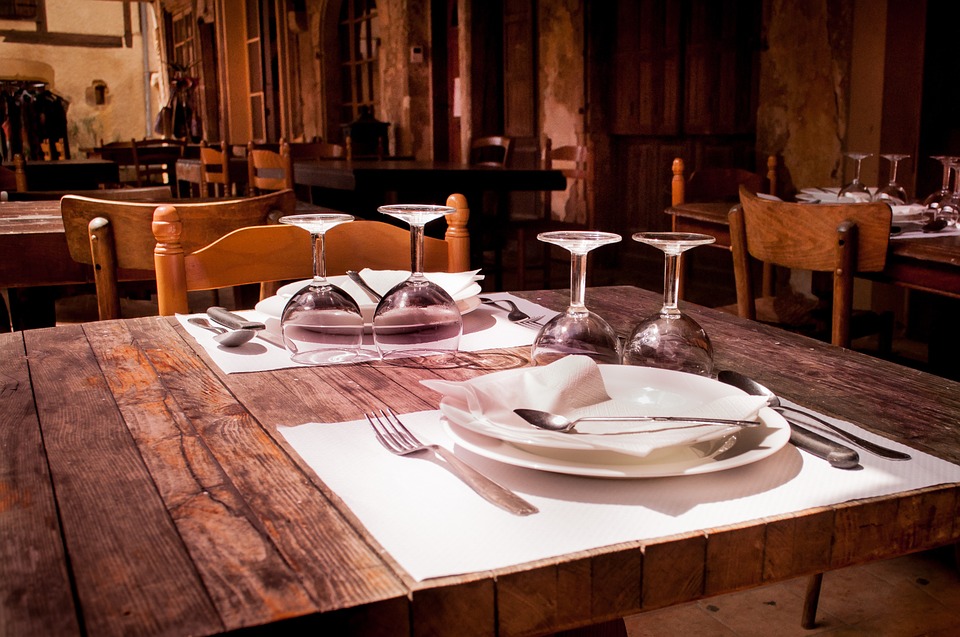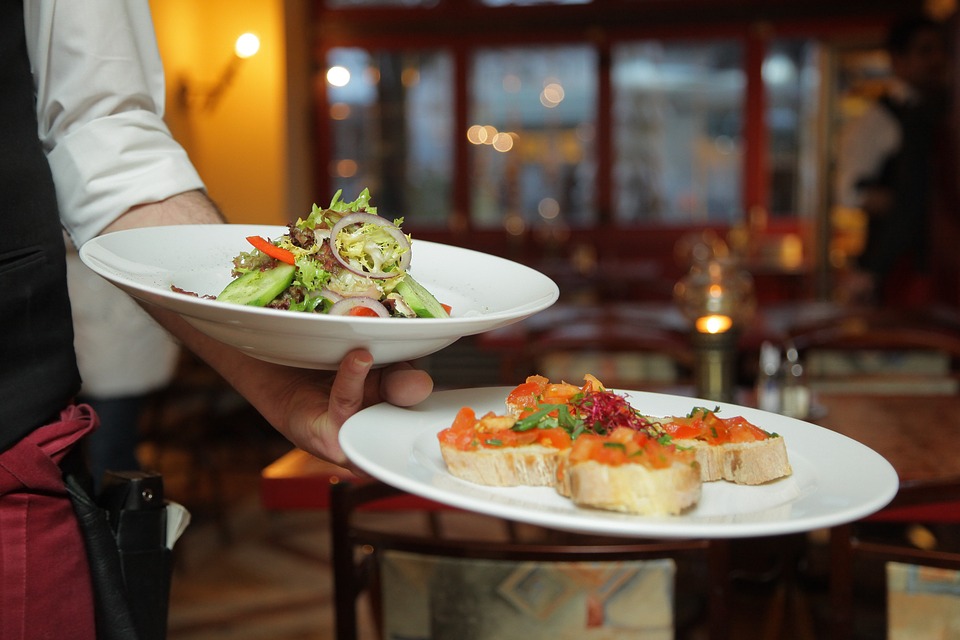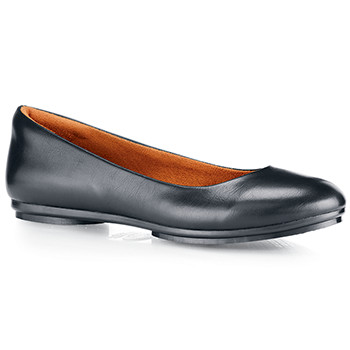
20 Common Waitress Interview Questions (and how to answer them)
Richella O DriscollGoing for an interview can be a very stressful experience. It can feel like you're taking an exam! There are so many answers but which one is right? Especially when you're in desperate need of a job, interviews can be more like a nightmare. However, we've got the answers. Here are 20 common waitress interview questions that every waitress will likely come across when being interviewed for a new job. We're sharing some of these common questions, with example answers, so you can adapt them and increase your chances of winning the job!

Interview questions can be hard to predict as there are so many different styles of questions. From the basic "What are your greatest strengths" to "Describe a time when...", the best thing you can do is be prepared for any curve ball the interviewer throws at you.
Here are the common interview questions, waitresses are likely to come across during any interview:
-
Chapter 1: What is your greatest strength?
-
Chapter 2: What is your weakness?
-
Chapter 3: What experience do you have?
-
Chapter 4: What is your favourite part about being a waitress?
-
Chapter 5: What do you like least about being a waitress?
-
Chapter 6: Describe a time you had to overcome a challenge
-
Chapter 7: Why do you want to work at this restaurant?
-
Chapter 8: Can you prepare tables?
-
Chapter 9: Do you have experience making and/or serving desserts?
-
Chapter 10: Are you comfortable carrying serving plates?
-
Chapter 11: How would you deal with an angry customer?
-
Chapter 12: Do you have bar experience?
-
Chapter 13: Can you make coffees using a coffee machine?
-
Chapter 14: What do you do in your free time?
-
Chapter 15: Why do you think you would make a great addition to our team?
-
Chapter 16: What is your knowledge like on wines?
-
Chapter 17: Have you worked long shifts before? Do you feel comfortable working on your feet?
-
Chapter 18: What's a example of a time you make a mistake with a customer and how you fix it?
-
Chapter 19: What do you expect your daily responsibilities will be if you got this job?
-
Chapter 20: As a waitress, it is important to maintain health and safety at work, how would you keep yourself, and your colleagues, safe at work?
Let's get started with some of the most common waitress interview questions and answers:
Chapter 1: What is your greatest strength?

This question is a popular question for most types of interviews. It's the kind of question, an interviewer asks to see if you're well suited for the job. To give the best answer you need to make it relevant to your job. For example:
Example Answer: "I think my greatest strength would be my experience, I've worked as a waitress for three years and I'm used to working independently and part as a team."
Interviewers will want to hear answers like 'my personality' or 'my experience.' Successful waitresses do well in their job if they have experience and they're friendly to customers. To show your interviewer you're telling the truth, use your CV or describe a time, to prove your greatest strength is real and not made up.
Chapter 2: What is your weakness?
You need to be careful with this question. Being too honest can dash all hopes of you getting the job. Here is an example of a good answer:
Example Answer: "Because I focus on making customers happy, I can get quite stressed. I understand you can't make every customer happy but I want to show I'm good at my job."
Business owners like to see their employees are willing to go the extra mile for their customers. If you can prove that you're willing to go out of your way to help people, you'll shine in the interview.
Chapter 3: What experience do you have?
Perhaps one of the biggest deal breakers. Not many managers want newbies working in their restaurant - that's why it can be so hard to get experience. Make sure you have some work experience on your CV.
Example Answer: "I have experience working in another restaurant, I worked busy shifts and I'm used to serving large parties. From my experience I feel comfortable talking to customers."
Interviewers like facts. If you have worked in a restaurant for over a year, make sure you tell them. If you've only had two months experience, focus on telling them about everything you've learned to show them you're a quick learner.
If you've never had experience working specifically as a waitress you can refer to examples when you worked in other service industries (hospitality, catering, caring, etc) or use examples from other jobs where you've had to work with customers. Waitresses work closely with people, so if you've never worked as a waitress before, make sure you've had work experience working with customers to increase your chances of winning the interview.
Chapter 4: What is your favourite part about being a waitress?

Interviewers want to see you have passion for the job. Use this opportunity to show why you applied for a waitressing job rather than an office vacancy. One good example can be:
Example Answer: "Waitressing gives me the opportunity to learn on my feet and I get to serve different customers. As there are new people in the restaurant every day, it means every day is different."
Be genuine about your answer, the interviewer will be able to tell if you're being honest or remembering the script you wrote that morning.
If you've never been a waitress before, this question will not apply to you.
To view more Waitress Interview Questions, click the link below! (No Email Required!).
Chapter 5: What do you like least about being a waitress?
Just like question 2, be careful what you say here. If you say, "I don't like waitressing, I just need the money," you might as well just leave the interview now. The manager will want to see you have some passion for the job.
Example Answer: "I suppose my least favourite part of waitressing is when you get an unhappy customer. Sometimes you get that customer who was in a bad mood when they arrived and they're unhappy with everything you do. It's alright, I'm used to it and I know how to remain professional throughout the situation."
If you've never been a waitress before, this question will not apply to you.
Chapter 6: Describe a time you had to overcome a challenge
Along with 'describe a time you had to work as part of a team', this question is one that regularly appears. As working as a waitress can be quite challenging, you need to show you can cope in difficult situations.
Example Answer: "In my last job, I had to work on Christmas Day. As it was busy, I had to help look after three Christmas parties and it was very challenging. As I was working with another waitress, we worked as a team to serve the larger parties together so they did not have to wait longer for their food to be served. I had to keep on my toes as food was coming out quick and customers wanted more drinks."
Give details, the interviewer will want to see how you coped with the challenge and if you had a successful ending.
Chapter 7: Why do you want to work at this restaurant?

Here's the time to show your interviewer you did some research before you came to the interview. Tell them some positive points about the restaurant. What do you like? The dining experience, the employees or the positive reputation.
If you've eaten at the restaurant before or you're a regular, that will surely win you some extra points.
Example Answer: "I really like the kind of food the restaurant serves. I love Italian food and I wanted to apply for a job where I could show my passion for the food when customers ask me questions."
Chapter 8: Can you prepare tables?

One of the main responsibilities for a waitress is to set the tables with the correct cutlery, glasses and table cloth. In some busy shifts, you will be expected to remove plates and glasses, then quickly prepare the table for the next guests. So, it's important you can do it independently and correctly.
Example Answer: "Yes, in my last job as a waitress I had to set out cutlery correctly. I know how to set out different types of wine glasses when preparing a table."
Chapter 9: Do you have experience making and/or serving desserts?

In some restaurants, waitresses and waiters are responsible for dessert orders. Cutting cakes, serving ice cream and working on the dessert presentation can become a daily responsibility for you.
Example Answer: "I've got experience making ice cream sundaes. When I first started at my last job, my manager taught me how to make them correctly and since then I followed the recipe and instructions."
If you don't have experience, show your willingness to learn.
Chapter 10: Are you comfortable carrying serving plates?

Carrying plates is one of the main duties of a waitress. If you can't carry plates or a tray, you're going to struggle to get the job. The technique to carrying 2-3 plates isn't difficult, once you get it, you've got it.
Example Answer: "I can comfortably carry two plates from the kitchen to the restaurant. Depending on the plates, I can sometimes carry three at a time."
This is one of the most common waitress interview questions, so if you've never worked as a waitress before, get some practice before your interview because they might ask you to show them that you can carry three plates.
Chapter 11: How would you deal with an angry customer?
Facing an angry customer can be a daunting experience, especially if they lose their temper. In most cases, customers are annoyed about something else in the restaurant and unfairly direct it at their food server. In all scenarios, you should react calmly and avoid getting angry yourself.
Example Answer: "After listening to the customer, I would try and think of a solution. If I'm unable to deal with the problem myself, I'd find my manager or another senior member of staff."
Chapter 12: Do you have bar experience?

Nowadays, restaurant employees like their waiting staff to have plenty of skills. If the bar gets busy but the restaurant is quiet, waitresses with bar experience can work on the bar to help the rest of the staff.
Example Answer: "I used to work on a bar a couple of years ago. I learned how to make cocktails and pour draught beer."
If you have no experience working behind a bar, show your interest in learning this new skill.
Chapter 13: Can you make coffees using a coffee machine?
Whilst making drinks is usually the bar staff's responsibility, waiters and waitresses will sometimes be expected to make teas and coffees if the bar staff is busy. Using those hi-tech barista machines can be scary if it's your first time using them but once you understand the method of making coffee, you'll be fine.
Example Answer: "I have experience working as a barista, so I'm happy to use the machines when I need to."
Again, if you have no experience, show your willingness to learn. Managers don't mind teaching people if they are willing to listen and learn.
Chapter 14: What do you do in your free time?

Don't be surprised if you get questions about your hobbies and what you do outside of work. Employers want to know what you're like as a person and if you will mix well with their other employees. Waitresses have to be sociable and comfortable talking to new people, your choice of hobbies can prove you're comfortable working with customers.
Example Answer: "In my free time I like going out with my friends. On the weekends, we enjoy going shopping. I particularly like going in clothes shops like H&M and Zara. When I can, I like going to the cinema and seeing the latest blockbuster films like Avengers Assemble. "
Always add a little more information. Rather than just saying "I like going shopping", say where you like to go so you can share more personal information about yourself and make your interview more memorable.
Chapter 15: Why do you think you would make a great addition to our team?
When you've worked in a great restaurant: the chefs, servers and management are like a family. They are a team working together. Some interviewers will be asking more questions about your personality rather than your skills, because they want to see if you will be a good fit with the rest of the team. Highlight your positives, let your personality shine and prove you would work well at their restaurant.
Example Answer: "I've worked in restaurants before and I think I got along with everyone I worked with. I do my job and I'm happy to help if anyone ever needs it. I enjoy having a laugh with my colleagues and getting to know them."
Don't be disheartened if you didn't get a job because you don't think the interviewer clicked with you personally. You cannot get along with everyone. All you can do is be honest because if you pretend to be someone you're not, they will figure it out eventually.
Chapter 16: What is your knowledge like on wines?

As a food waiter, you will often be asked about wines. In some restaurants, you can get a Sommelier, this is a wine steward who specialises in wine service. Although you won't need to be a wine specialist, it's good to have some knowledge on which foods go best with which wine for the occasions when you are asked by a diner.
Example Answer: "I'm not much of a wine drinker but I have a good sense of which wines pair well with certain foods, because of my previous experience as a waitress. If I started working here, I would like to have a look at the wine list and find out which dishes work best with which wines. So if a customers asks me, I can give them a good recommendation."
Chapter 17: Have you worked long shifts before? Do you feel comfortable working on your feet?
Some people who start their first waitress jobs quickly discover if they like or dislike this type of work. Being a waitress is an active job, you're very busy and you're on your feet for long hours at a time. You need to show your interviewer you can do the job and be happy doing it.
Example Answer: "I've worked in similar busy jobs where I've had to be on my feet for most of my shift. I'm used to it and I enjoy this type of work."
 Valencia: smart work shoes for waitresses
Valencia: smart work shoes for waitresses
Wearing supportive work shoes can reduce foot pain and support your feet through long shifts.
Chapter 18: What's a example of a time you make a mistake with a customer and how you fix it?
It can happen to anyone, serving a customer and then making a mistake, like giving them the wrong change, wrong food order or forgetting a request. Whilst it's important not to do it often, you must be willing to admit your mistakes and fix the situation. This is a sign of a great waitress.
Example Answer: "I took a food order and accidentally wrote down chicken burger instead of beef burger. When I brought the order, I realised I had made a mistake, I was obviously embarrassed. I apologised to the customer, who was thankfully very nice about it and then I went to the chefs who were about to get a beef burger ready in 10 minutes. I served it to the customer and apologised again."
Chapter 19: What do you expect your daily responsibilities will be if you got this job?
The interviewer wants to see if you a) read the job advert properly and b) understand what it means to be a waitress. Explain what the responsibilities are of most waitresses and most importantly, read the advert before going to the interview to make sure you understand what they want from you.
Example Answer: "From your job advert, I thought it would be a normal waitress role. Taking orders, serving meals, cleaning tables and helping with drink orders. I remember the advert saying that you would need the candidate to work every other Sunday, which I'm happy to do."
Chapter 20: As a waitress, it is important to maintain health and safety at work, how would you keep yourself, and your colleagues, safe at work?

Whilst this is not a very common question, more employers want to see their staff respecting health and safety rules at work. In a 2013/14 study by HSE they discovered the cost of injuries at work cost employers £2.8 billion. Show your future employer how you respect health and safety at work.
Example answer: "For health and safety, I always keep my hair tied back at work. In the past, I've worn blue plasters on my fingers if they've been cut. When there is broken glass on the floor, I know to alert another colleague and get it cleaned up quickly to avoid injuring our diners or staff. At work I always make sure to wear appropriate work shoes, to reduce the chance of slipping or falling."
With your response, show your awareness of potential hazards in a restaurant and how you actively reduce your chances, along with your colleagues' and diners', of having an accident.
Good luck with your job interview!
You've got the job! What next?
Once you've got the job, there are some important things you need to prepare for before your first day:
- Buy the correct uniform (and make sure it's comfortable).
- Buy work shoes that are supportive: Remember waitresses are expected to be on their feet for their entire shift. You need to buy the right footwear.
At Shoes For Crews (Europe) Ltd. we equip restaurant employees in the UK (and across the world) with slip resistant shoes (see the companies who buy from us). As a waitress you need slip resistant shoes to reduce the chance of slipping or falling at work:
Are there any other common waitress interview questions you think should be in this list? Tell us in the comments below.
Related Posts

Top Waterproof Work Shoes to Keep Your Feet Dry...
Whether you’re working in a busy restaurant, a wet warehouse, or outdoors in the Irish rain, waterproof work shoes are essential for comfort, safety, and performance. Shoes For Crews Europe...
Top Waterproof Work Shoes to Keep Your Feet Dry...
Whether you’re working in a busy restaurant, a wet warehouse, or outdoors in the Irish rain, waterproof work shoes are essential for comfort, safety, and performance. Shoes For Crews Europe...

Best Shoes for Restaurant Workers in Ireland fo...
Restaurant workers across Ireland understand the challenges of staying on their feet for long hours, navigating bustling kitchens and dining areas, and contending with slippery surfaces. Whether you’re creating culinary...
Best Shoes for Restaurant Workers in Ireland fo...
Restaurant workers across Ireland understand the challenges of staying on their feet for long hours, navigating bustling kitchens and dining areas, and contending with slippery surfaces. Whether you’re creating culinary...
